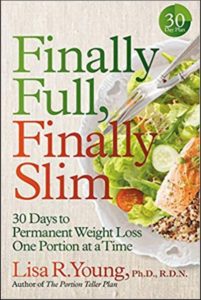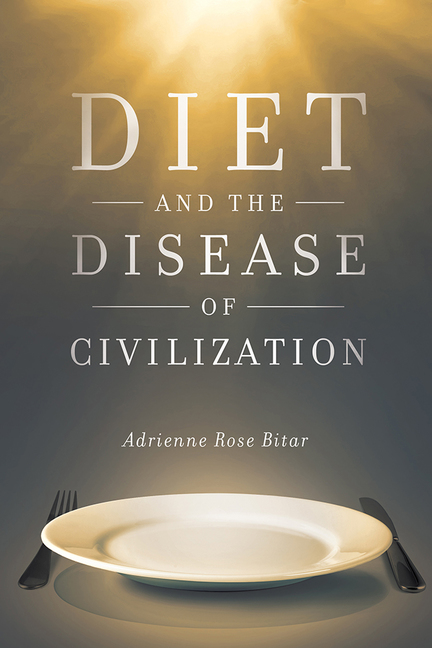Weekend reading: a diet book!
Lisa R. Young. Finally Full, Finally Slim: 30 Days to Permanent Weight Loss One Portion at a Time. Center Street, 2019.

I don’t usually write about diet books, but Lisa Young did her doctorate with me and I have followed her subsequent career with great interest. She has taught for years in my NYU department and has a lively private practice counseling clients about weight loss and other nutrition issues.
Her book explains what works best with her clients. She must be fun to work with. The writing is warm, friendly, and to the point. Her advice is easy and sensible: eat what you like (especially of healthy foods), just not too much. She is generous with tips about how to deal with parties, restaurants, and other challenging situations, what she categorizes as “slices of advice,” “bite-size goodies,” and “wedges of wisdom.”
Her main focus is on portion control:
Portion control is like a classic wardrobe: It never goes out of style. It’s not a trendy fad but a proven method for healthful living. When you enjoy balanced meals and nutritious foods in appropriate portion sizes, you can get off the weight-loss merry-go-found. So go ahead and enjoy a glass of wine or an occasional ice cream cone (a single scoop!). Eat brown rice, quinoa, and other healthy carbs. It’s not only okay. It’s the best way to achieve long-term weight loss and maintenance.
Good advice, and easy to take.
No wonder its getting such great press.
- She’s on the cover of the January 2 New York Post, with much more about the book on pages 25, 26, and 27.
- Here’s an interview Lisa did in September.
- And here’s one she just did with Diet Detective.





